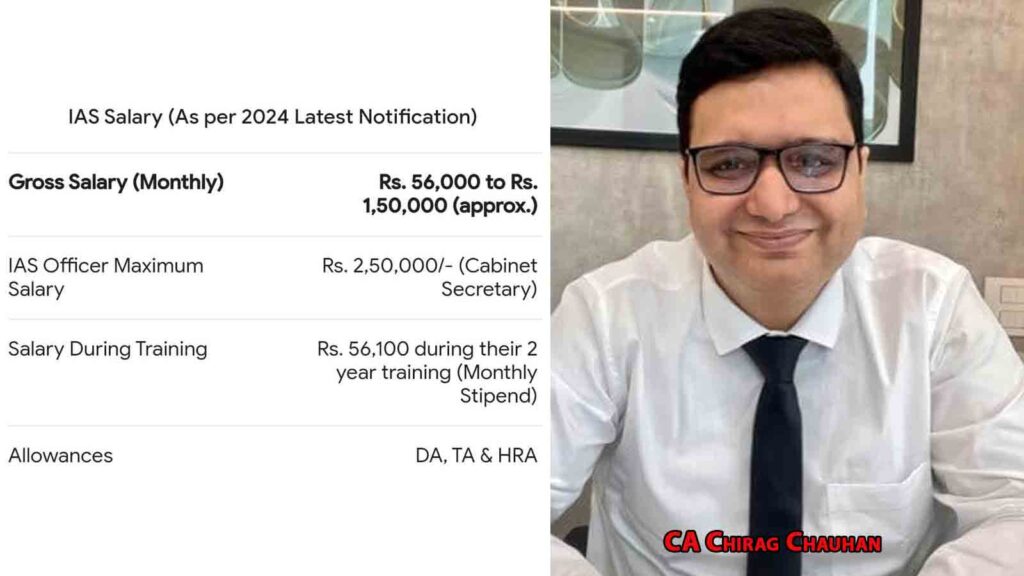Viral Post: CA questions preference for IAS over higher-paying professions, sparks debate

Viral Post: CA questions preference for IAS over higher-paying professions, sparks debate
A recent post by a Chartered Accountant (CA) comparing the salary structure of his profession with that of the Indian Administrative Service (IAS) has ignited a debate on social media.
In the post, CA Chirag Chauhan expressed his confusion over why individuals opt for IAS despite the significantly higher salary range offered in professions like CA
The average salary of an IAS is the starting salary of a CA
— CA Chirag Chauhan (@CAChirag) April 17, 2024
Why do people prefer IAS? pic.twitter.com/KpODLY8F9i
Chauhan’s post, which surfaced on X, questioned the preference for IAS over professions like CA, considering the salary disparity between the two. He highlighted that the average salary of an IAS officer corresponds to the starting salary of a CA, prompting him to inquire about the rationale behind choosing IAS.
The post shared two days ago, has garnered widespread attention, accumulating over 7.5 lakh views and close to 2,400 likes on various social media platforms. However, it has also sparked a divisive conversation among netizens.
While some individuals opposed Chauhan’s stance, emphasizing that the allure of power and respect associated with the IAS outweighs monetary considerations, others supported his viewpoint, echoing his sentiments about the salary disparity.
Read comments on the post here:
“Have you ever heard of an IAS ever reporting to a CA? Ever!? (Unless the CA is a senior govt employee or a minister),” posted an X user.
“Power and respect is greater than money,” expressed another.
“People wanting to join IAS are not motivated by money; they are motivated by a desire to serve people,” shared a third.
Chauhan’s comparison has sparked a broader discussion about career choices, societal perceptions, and the factors that influence individuals’ decisions when selecting their professions. As the debate continues to unfold online, it underscores the complex interplay between financial incentives, personal aspirations, and societal values in shaping career paths.









